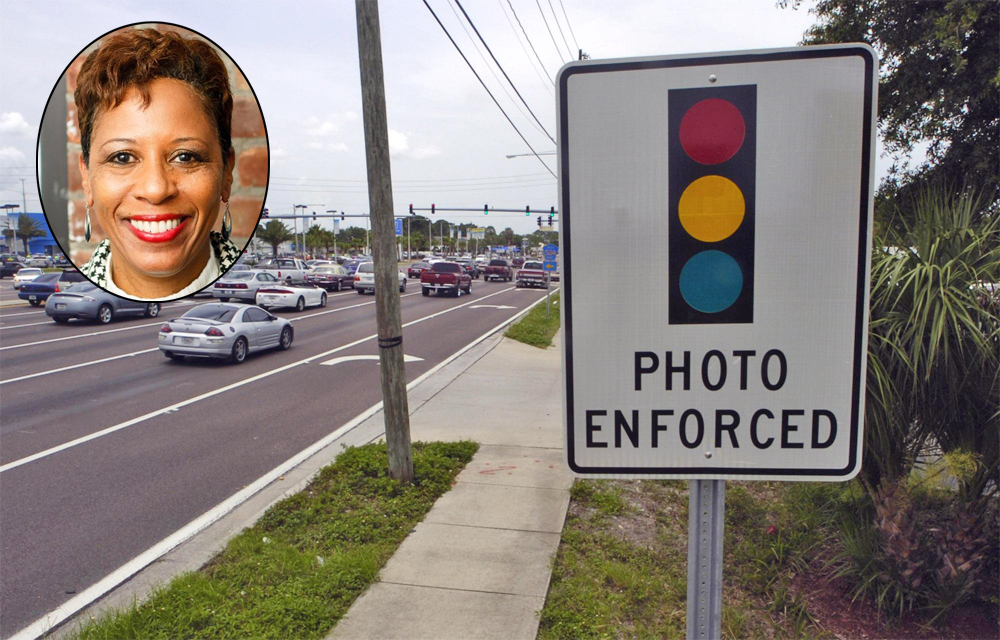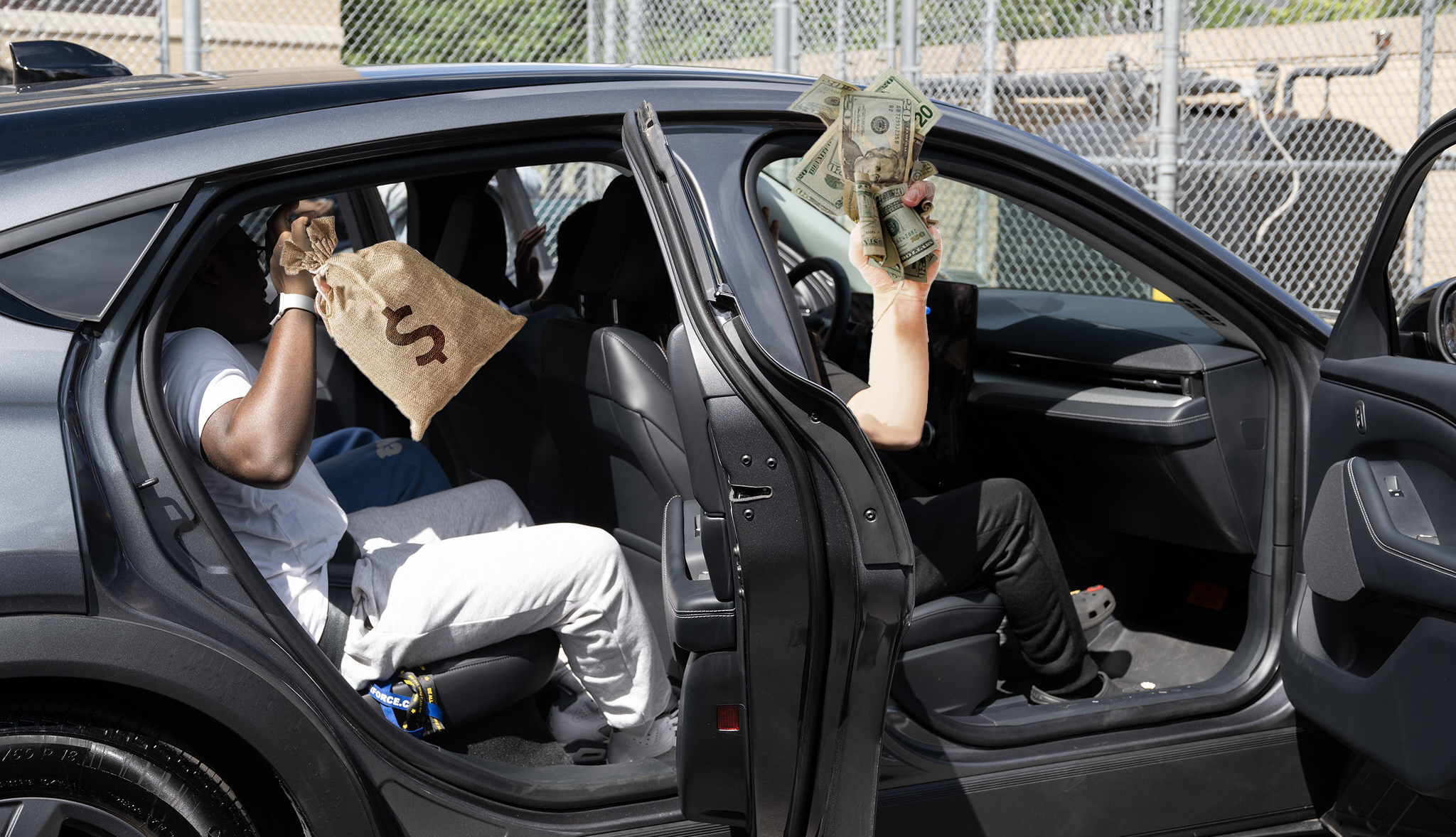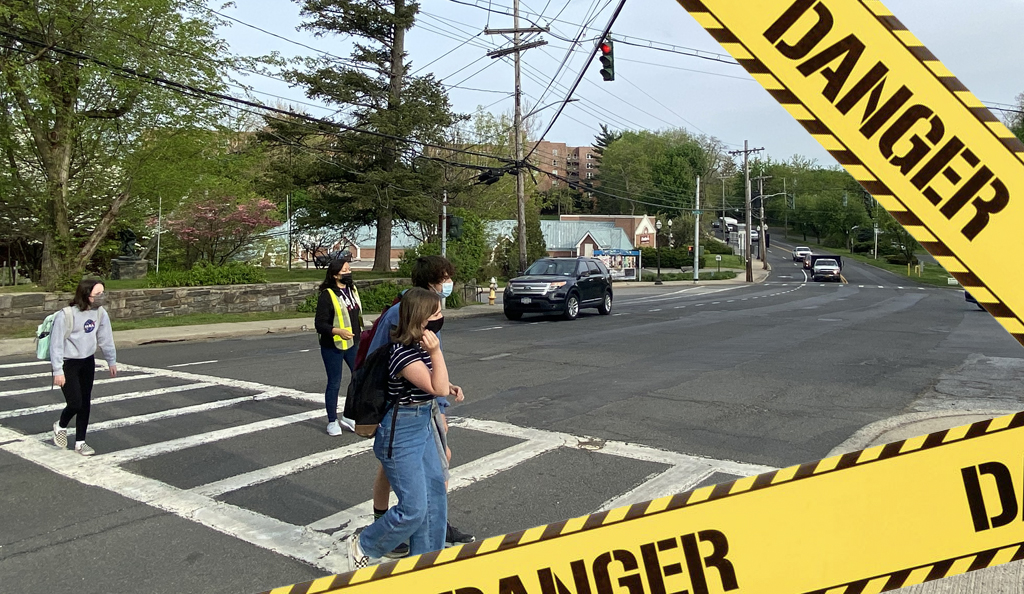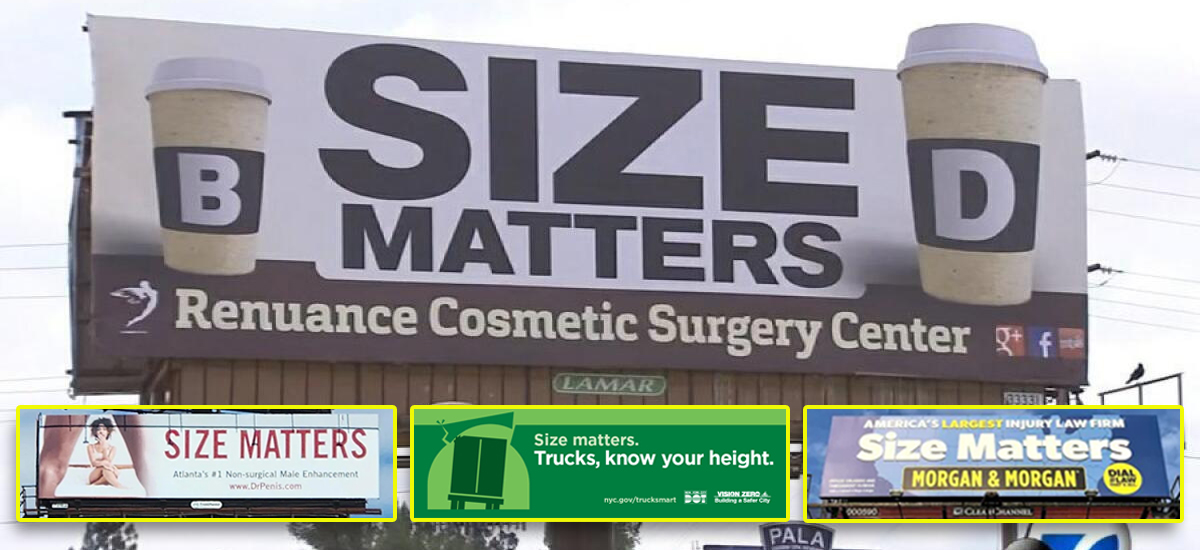New Council Speaker Adrienne Adams on Friday sympathized with a speedster who doesn’t want to pay the price for her reckless driving — repeating a common fallacy that the cameras are a money-making ploy that disproportionately affects communities of color.
During Brian Lehrer's eponymous radio show on WNYC, a caller from Staten Island, who identified herself as Leigh, lamented to Adams that she has to drive because she’s disabled, and therefore should not be subjected to the fines automatically levied against those who exceed the speed limit near schools by more than 10 miles per hour.
“I’m disabled, I depend on my car," Leigh said. "It’s pretty well acknowledged that the speed cameras are there as a money-making operation and not really as a safety situation, and I think there should be a more equitable and more considered use of the speed cameras, and not just willy-nilly handing out the tickets.”
Despite the fact that it is not at all "well acknowledged" that speed cameras are a scam, Adams — who represents car-centric neighborhoods of Jamaica, Richmond Hill, Rochdale Village, and South Ozone Park — nonetheless propped up the caller’s dismissal of the cameras as a proven life-saving technology, and instead fueled the theory that they’re a way to nickel and dime New Yorkers, often on the backs of communities of color, where years of neglect have led to wide, untamed streets that induce speeding and whose residents are disproportionately the victims of reckless drivers.
“Speed cameras, we’re gonna talk about that because we happen to be sharing the same concerns here in southeast Queens,” said Adams during the live broadcast, her first time on the show as speaker.
But the speaker didn’t stop there. Adams also voiced a conspiracy theory that the cameras are not actually near schools, as they are required to be by state law, saying, "And they’re not necessarily around school zones and we’re gonna take a look at that also."
Her comments hit a nerve in those who have suffered the loss of a loved one to traffic violence.
"Speed safety cameras work, and countless lives have been saved because of fewer speeding drivers on New York City streets," said Rita Barravecchio, a member of Families for Safe Streets, whose 17-year-old niece Madeline Sershen was killed by a reckless driver while crossing the street in Queens in 2018. "We don’t want anybody else to go through the horrific pain of losing a loved one in a crash. After a year of record-breaking traffic violence, there is now even greater urgency to expand the speed safety camera program. We can save lives and we must make streets safe everywhere.”
And Adams's comments are an about-face from previous Council Speaker Corey Johnson, who was an ardent supporter of speed cameras.
Well this deeply sucks. https://t.co/nH9InUmhRs
— Second Ave. Sagas (@2AvSagas) January 21, 2022
It's unclear if there is any merit to Adams's concerns. In the three sprawling Community Boards that make up Adams’s district — 9, 10, and 12 — there are 125 speed cameras, according to records obtained from a Freedom of Information Request by former Queens Council Member Daneek Miller, and shared with Streetsblog. But there are also several dozen schools in those three community boards.
It’s also unclear who is being ticketed in the five boroughs. The Department of Transportation has refused to provide Streetsblog with the exact locations of all its 750 school zone cameras, though the agency says the cameras are placed in areas of high speeding. Because of decades of neglect and racially biased city planning, many of the roadways in communities of color have not received the same kind of street improvement and safety redesigns as roadways in majority White neighborhoods, Streetsblog has reported. So that might explain why residents of Black and brown communities — or people who merely drive through such neighborhoods — believe they are being wrongly targeted.
Fueling the concerns of unfair treatment, however, ProPublica recently reported that in Chicago, 38 percent of the automated speed camera tickets were sent to residents of majority-Black ZIP codes, despite the fact that those ZIP codes account for just 27 percent of Chicago’s population. But that report also found that the fixed cameras themselves were not disproportionately concentrated in Black neighborhoods. And, obviously, the race of the recipient of the ticket is unknown.
What is clear though, is that speed cameras do work, previous reporting by Streetsblog has revealed — drivers are not only learning their lesson and slowing down, but they've also led to fewer crashes. And the only drivers who get them are the ones who are going 11 or more miles per hour above the speed limit.
"After a year of record-breaking traffic violence, it is key that this critical Vision Zero tool is expanded to save lives and make streets safe everywhere," Families for Safe Streets said in a statement.
Speed safety cameras work.
— Families For Safe Streets *Vote on Sammy's Law* (@NYC_SafeStreets) January 21, 2022
Speeding has dropped by 72% at the limited locations and hours they are allowed to operate.
After a year of record-breaking traffic violence, it is key that this critical #VisionZero tool is expanded to save lives and make streets safe everywhere. https://t.co/KSq2PcwZoH
In 2019, after the Department of Transportation started expanding the school-zone camera program from just 140 to 750 camera systems citywide, and also expanded the hours the cameras could operate, the number of motor vehicle collisions dropped by 10.4 percent compared to the same time period the year before, Streetsblog has reported.
speed cameras, literally:
— Jessie Singer (@JessieSingerNYC) January 21, 2022
- save lives
- are only legally permitted to operate in school zones
- only trigger when you're exceeding the limit by 10 mph
- are up for reauthorization this session, and thus
- are a really bad choice for offhand misinformation
And the former de Blasio administration knew these benefits — for years it had not only been advocating for local control of speed cameras, but also started asking the state Legislature to give the city the ability to operate its existing camera systems on a 24/7 basis, instead of only during weekdays.
Speed 👏cameras👏work👏!
— Andrew Gounardes (@agounardes) January 21, 2022
Now we need to grow the program and make sure they work 24 hours a day. https://t.co/iHkOyAQNQw
The Department of Transportation did not respond to a request for comment for this story. And Adams did not respond to a request for clarification and comment.






